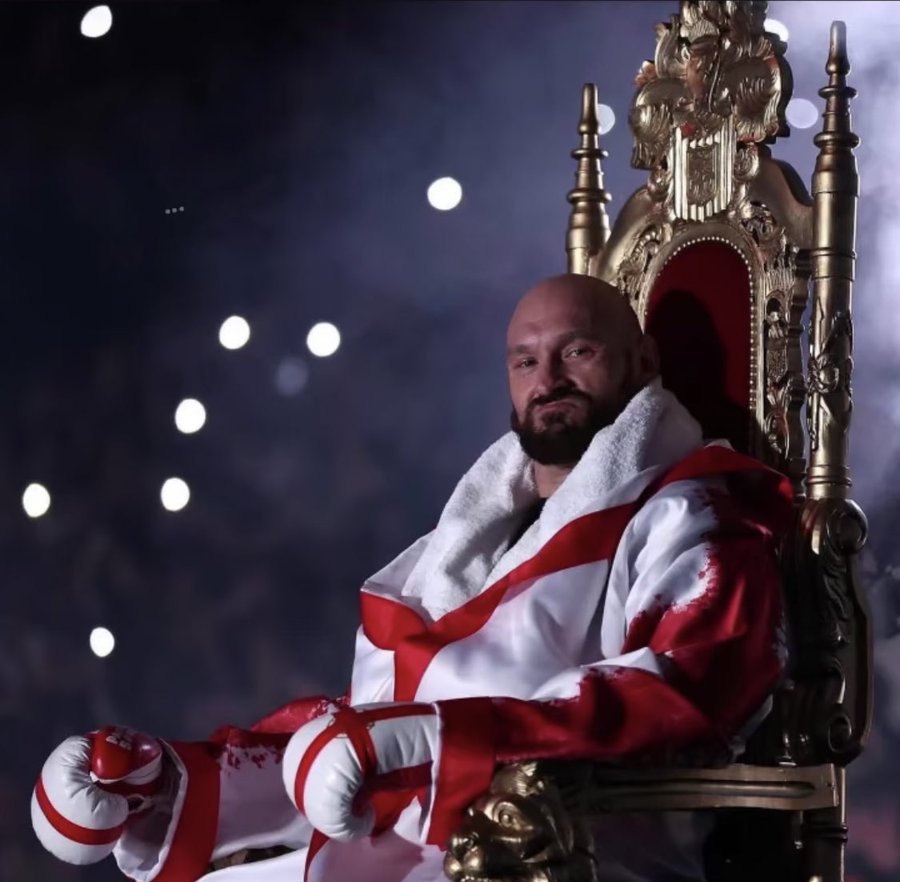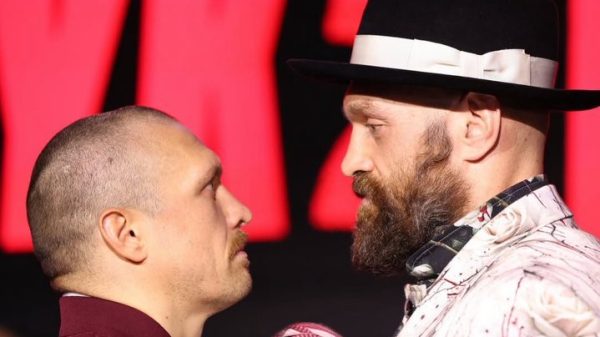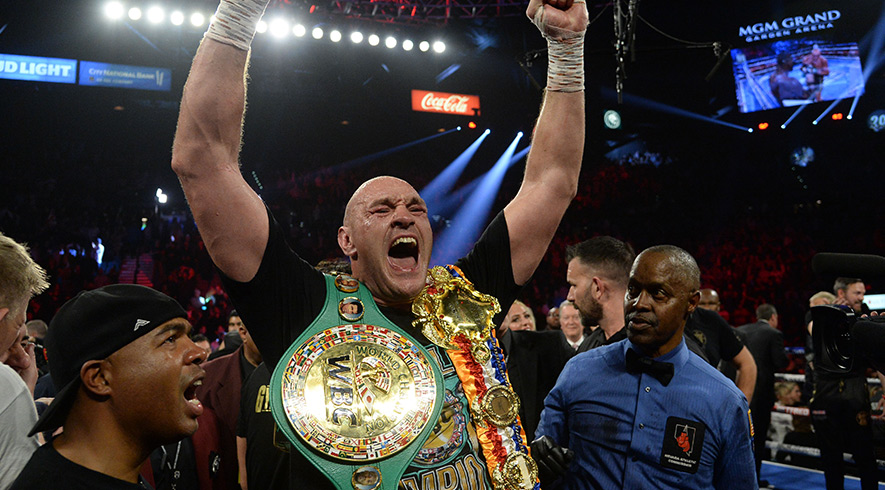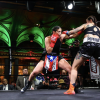By: John Tsoi
Following the fascinating heavyweight showdown between Anthony Joshua and Wladimir Klitschko this past April, everyone is looking forward to the next blockbuster match that will hopefully happen in 2018 – Joshua vs. Wilder. Many have Joshua as the early favorite against the American, with some even claiming that Wilder would easily get knocked out. After dissecting several of their notable fights in their careers, as well as analyzing their habits and styles, this fight between the two might actually be a 50-50 contest.

Being the WBA, IBF and IBO heavyweight champion of the world, Anthony Joshua is often lauded for his solid fundamentals. He boasts an effective stiff jab, has good defensive awareness with his right hand up protecting his chin, while also using his lead hand to parry his opponent’s jab and measure distance. If one watches his fights closely, his trademark punches would be the uppercut when his opponent gets close, as well as the left-hook-right hook combination. He has shown qualities of being able to gauge the punching range well by his efficient footwork, something that is less discussed because his movements are not really flashy or swift. In addition, he has the ability to create effective punching spurts when his opponent is badly hurt, making him a lethal finisher.
On the contrary, Deontay Wilder’s style is a stark contrast to that of Joshua. Apart from his punching power, he is a boxer that thrives in his overall movement. Being more agile than Joshua, he relies on his reflexes and movements to avoid his opponent’s punches with his hands-down approach. It is expected that Joshua will take up the centre of the ring and stalk Wilder who is likely to move around while trying to find openings, especially when the American is expected to weigh in less than Joshua. The Bronze Bomber loves throwing the one-two that is so powerful that it pierces the high guard of his many rivals, while also unleashing a barrage of left and right hooks when others go defensive. Many expressed their worries that Wilder’s “wildness” in swinging hooks could cost him the biggest victory in his career if this fight materializes. However, the American actually only does that when he has his opponent hurt, showing that he has good boxing intelligence to determine when to be aggressive.
Joshua’s strategy against Wilder should focus on landing hooks and body punches, as well as creating sustained attacks at appropriate moments. The reason behind is that the American’s defense is quite vulnerable to such punches as seen from his previous fights, especially the one against Eric Molina in rounds 2 and 3, and the first contest against Bermane Stiverne in rounds 3, 6 and 12. There were moments when Wilder adopted a high guard defense, for example, when being forced near the ropes, and was tagged with left and right hooks while also allowing his opponent to execute several decent attacks to the body. Being a significantly heavier puncher than both Molina and Stiverne, Joshua can try to trap Wilder against the ropes, forcing him to put up a high guard which opens the door for Joshua to either go up with left or right hooks, go down to the body, or mix them up with combinations. Having shown his aggressive brilliance, Joshua should aim to create sustained pressure on Wilder, something that no opponent has been able to execute against Wilder. It brings the American out of his comfort zone such that Joshua might be able to connect some fight-ending punches that could solidify him as the top heavyweight in the world.
On the other hand, Wilder should aim at exploiting Joshua’s relatively slow movement, counter over the probing jab, and take advantage of the British world champion’s in-round stamina issues. Overall athleticism is a category that Wilder excels in as most of the current heavyweights are heavy and clunky, in which Tyson Fury is perhaps the only one that can match Wilder. The American needs to use his agility to box Joshua smartly instead of letting his emotions go wild and engage in a slugfest. In particular, Wilder is not stiff and has good upper body movement, where he sometimes moves his whole upper body to evade punches. When there is an incoming jab or the lead hand is probing, he should try to counterpunch more after ducking to the left against Joshua’s orthodox stance.
Last but not least, Joshua’s stamina is often criticized by the public. Here I would like to offer an explanation on how exactly his stamina affects Wilder’s strategy. It is common and normal for a fighter’s punch output and stamina to go down gradually as a fight progresses, so the crux of the issue is actually Joshua gassing out within a round that he was aggressive in. In round 5 of his fight against Klitschko, he started really aggressive and knocked down the future Hall of Famer. However, he obviously became tired afterwards as a result of the sudden offensive output that his gigantic body had to cope with, plus Klitschko also landed some punches before that round ended. Notice how his right hand, which usually covers his chin in a disciplined fashion, started to lower, allowing an opening for his opponent. However, after getting knocked down in round 6, this is what most people fail to see – Joshua recouped since round 7. Surprisingly, he looked like he caught a second wind, had his right hand up again, and even adjusted to Klitschko’s one-two combinations by ducking effectively. This hints that possibly due to Joshua’s youth and training, he possesses the ability to recuperate after having rounds where he is gassed out or hurt, but only if his opponent gives him the time to do so. This points us to Klitschko’s mistake – not applying more pressure when he had Joshua hurt. Therefore, given that Wilder has the character of ending fights once he has his opponent hurt instead of playing it safe, he must try to knock Joshua out as soon as possible should he manages to get him into deep water. If Wilder can bait Joshua to be aggressive while he himself stay calm defensively and sneak in some big punches in between, it could work perfectly in the American’s favor.
After a scintillating year in the sport, this is certainly one of the best fights to make that takes us down the memory lane, when two heavyweights would fight their hearts out amidst the euphoric and buzzing crowd. Despite the verbal jabs and social media war of words, there lies a hidden sense of mutual respect. Wilder sees himself in Joshua as much as Joshua sees himself in Wilder – the grit and hard work that brought them from humble beginnings to becoming heavyweight champions of the world. It would be a pity if the business side of boxing prevents this fight from happening. All we want is to see boxing at its finest, where great fighters do not shy away from each other.









